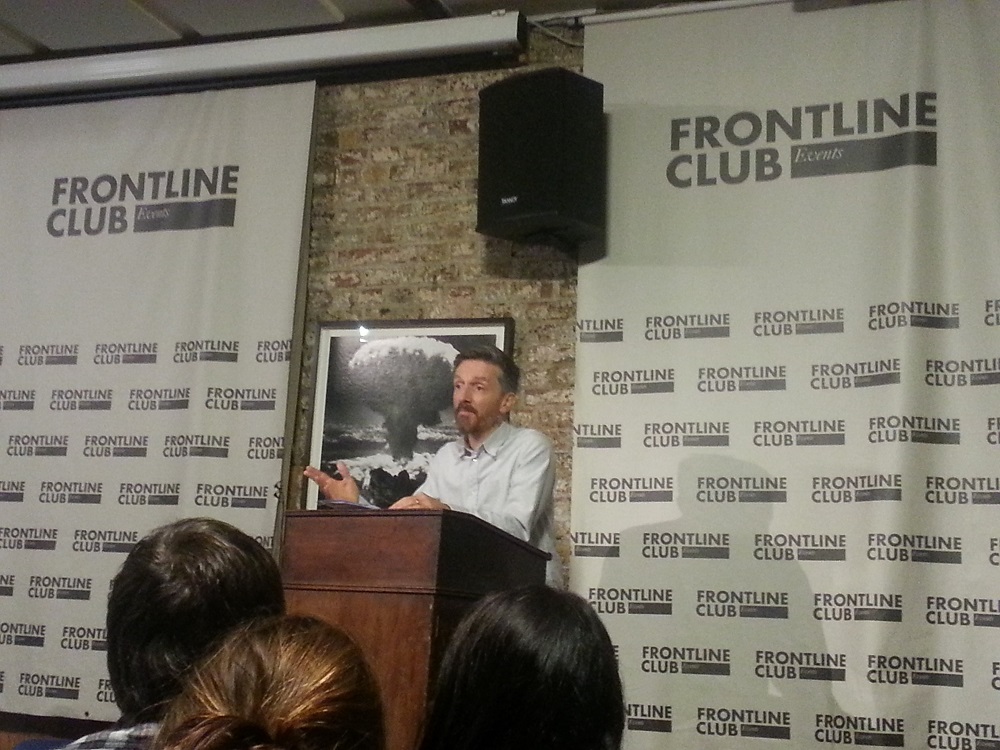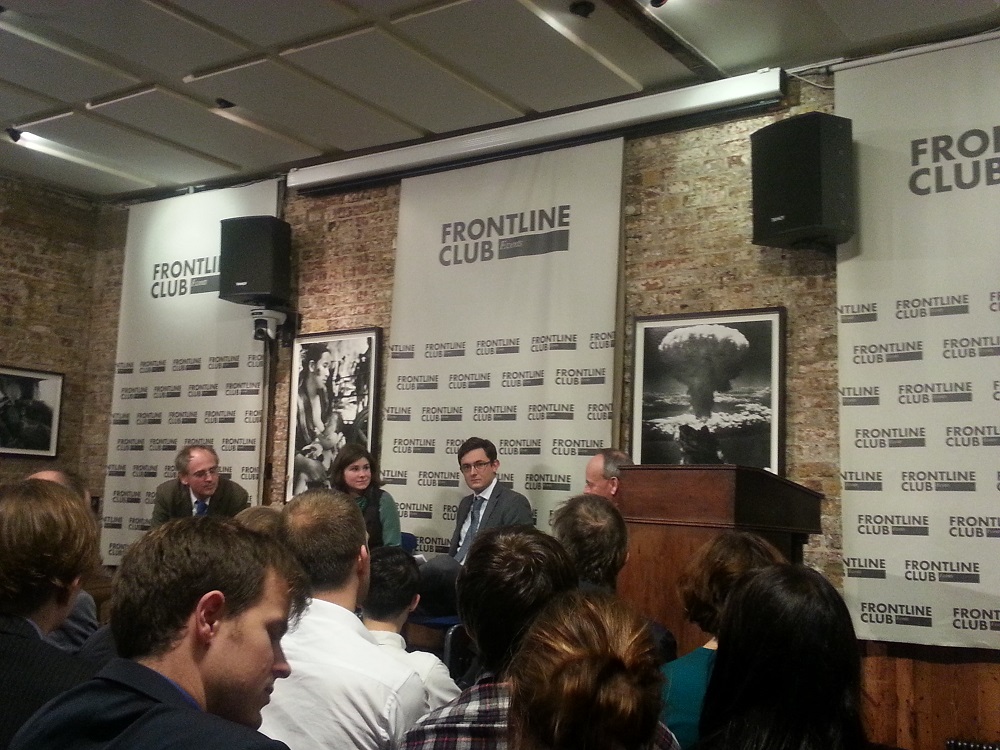Russia Commentators Gather For London Performance Of Khodorkovsky Writings
Yesterday evening Russia commentators, journalists and interested members of the public converged on London’s, The Frontline Club, to watch an exclusive performance of Mikhail Khodorkovsky’s writings.

The readings were directed by Noah Birksted-Breen, the artistic director of the Sputnik Theatre Company, and were based on a selection of Khodorkovsky’s writings and interviews. The performance, by actor Jonathan McGuinness, dramatised a number of Khodorkovsky’s writings, as well as interviews with Khodorkovsky and with a former cellmate who was instructed to attack him in 2006. It also included testimony from Khodorkovsky’s lawyer and colleague, Vasily Alexanyan, who was tragically killed as a result of his treatment during pretrial detention.
A panel discussion followed, chaired by Edward Lucas, the international editor of The Economist and author of Deception: Spies, Lies and how Russia Dupes the West and including Sir Tony Brenton , British Ambassador to Russia from 2004-2008, Ben Judah, author of Fragile Empire: How Russia Fell in and Out of Love with Vladimir Putin and Tonia Samsonova, the UK correspondent for Echo of Moscow Radio.

Sir Tony commented that Khodorkovsky ended up in jail because the Russian authorities saw him as a threat to their power, but at the time they did not realise the international repercussions for Russia’s reputation that the trial would have.
“The Khodorkovsky case was a personal tragedy that turned into an indictment of the Russian judiciary [… ]Khodorkovsky’s case was not about money – it was about power. It was Putin removing an opponent.”
Ben Judah suggested that over time Khodorkovsky has become an example of Russian abuses and contextualised the case by saying:
“Putin destroyed every unit of accountability in Russia and at the same time elevated the bureaucracy to such an extent that it became untouchable.”
Tonia Samsonova emphasised that traditionally there is little sympathy in Russia for rich Russians in jail but that with the Khodorkovsky case this has changed over time. She went on to explain how in many ways the Khodorkovsky case provided a blueprint for a number of similar cases:
“The Khodorkovsky case opened up other similar cases for smaller companies and individuals. It was the beginning of a pattern in Russia.”
Samsonova elaborated on the corruption that pervades the Russian prison system, stating that:
“For decades the late Soviet system of prisons never changed but now the proceeds from the work that prisoners are forced to complete is used to fund the corrupt officials who run them with their expensive houses in other countries.”
Asked what Khodorkovsky now symbolises, Sir Tony Brenton ended the evening by saying:
“What he symbolises now is very different to what he symbolised before going to jail – following the purification of jail. I suspect that he will be released next year, but what is going on right now in the Kremlin is they are weighing up if he is a bigger problem to them in or out…”
A video of the event can be viewed here:



